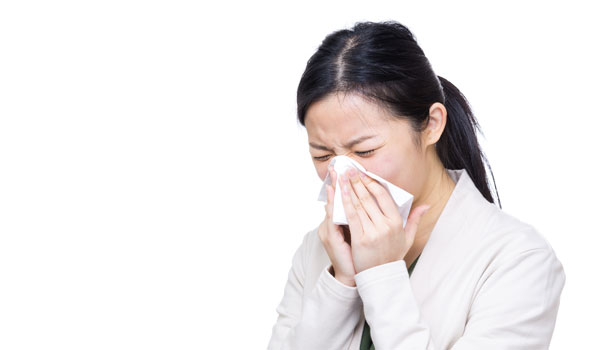When the seasons change, it is easy to induce “allergy” phenomena, such as itchy eyes, itchy skin, nasal congestion, runny nose, or mental weakness. Some people may even have severe allergies that affect their daily life.
1. Eating Habits
- Eat a variety of foods in small amounts and a balanced manner, and don’t always eat certain types. In terms of protein, eat eggs in the morning, pork at noon, fish in the evening, and tofu the next morning. Vegetables and staple foods also follow this principle of rotation.
- Adjust fat intake. Reduce high-fat foods and consume more omega-3 fatty acids that can inhibit inflammation, such as deep-sea fish, walnuts, and flaxseeds.
- Reheat before eating. Certain ingredients that can cause allergies, such as proteins, will be denatured after heating to reduce the risk of allergy. If you are eating food for the first time, you may want to cook it first before eating it.
- When buying food, read the nutrition labels carefully to see if the ingredients contain ingredients that may cause allergies (such as peanuts in chocolate), and try to eat as few artificial additives as possible.
- Eat more fresh vegetables and fruits and get enough vitamins. Vitamin A helps maintain cell integrity and normal functions and reduces allergens. Vitamins C and E can resist oxidation and reduce inflammatory reactions. Vitamin C and pantothenic acid can also normalize the secretion of adrenaline and reduce allergic symptoms.
2. Home Environment
- It is better to use wood, leather, and plastic products for furniture, and use less cloth products and stuffed furniture.
- Because it takes about 20 to 30 days for dust mites to grow from eggs to adults, they do not like drying in the sun, and their feces are water-soluble, in addition to using anti-mite bedding covers, wash bedding with hot water every two weeks, and dry quilts and clothes in the sun. Dry in the sun or a dryer for at least 20 minutes.
- Use a dehumidifier to control the humidity in your home between 50 and 60 degrees, and keep the kitchen and bathroom dry to reduce the growth of mold. People with allergies shouldn’t live in a suite with an attached bathroom to avoid excessive humidity. The room should be ventilated and well-lit. When the weather is fine, open the doors and windows to allow air circulation.
- Avoid placing or hanging decorations and stuffed toys that easily accumulate dust.
- Human dander and dirt are also the food that dust mites like to eat. Pillows and cushions that are frequently touched should also be cleaned and replaced frequently.
- The air outlet of the air conditioner is prone to accumulation of dust, so it is necessary to clean and replace the filter regularly.
3. Daily Stress Relief
- Get enough sleep and don’t stay up late. Adequate rest can restore body balance and help relieve allergy symptoms.
- Do good time management. Use more free time to rest and relax so that your biological clock can work well.
- Avoid burnout. Fatigue reduces immunity and dysregulates the autonomic nervous system.
- Exercise every day, even if it’s just a walk. Exercise can reduce the secretion of stress hormones, help secrete adrenaline, relieve mucous membrane congestion, and make breathing smoother.
- Practice sitting meditation. 20 minutes each time, twice a day, can reduce stress and calm emotions.
- Face it with a positive attitude. Especially with young children, don’t let allergies get them down. Encourage him that as long as he gets good treatment, he can return to a normal life.
- Do more belly breathing (less mouth breathing). Helps the normal functioning of the positive and parasympathetic nerves and prevents endocrine disorders from triggering allergies.
- Quit smoking or avoid secondhand smoke. Although smoking can relieve stress for a short time, it can induce allergies, as does second-hand smoke.
- Take your medicine as directed by your doctor. Anxiety and depression caused by stress may affect medication compliance, creating a vicious cycle that makes attacks more likely.




